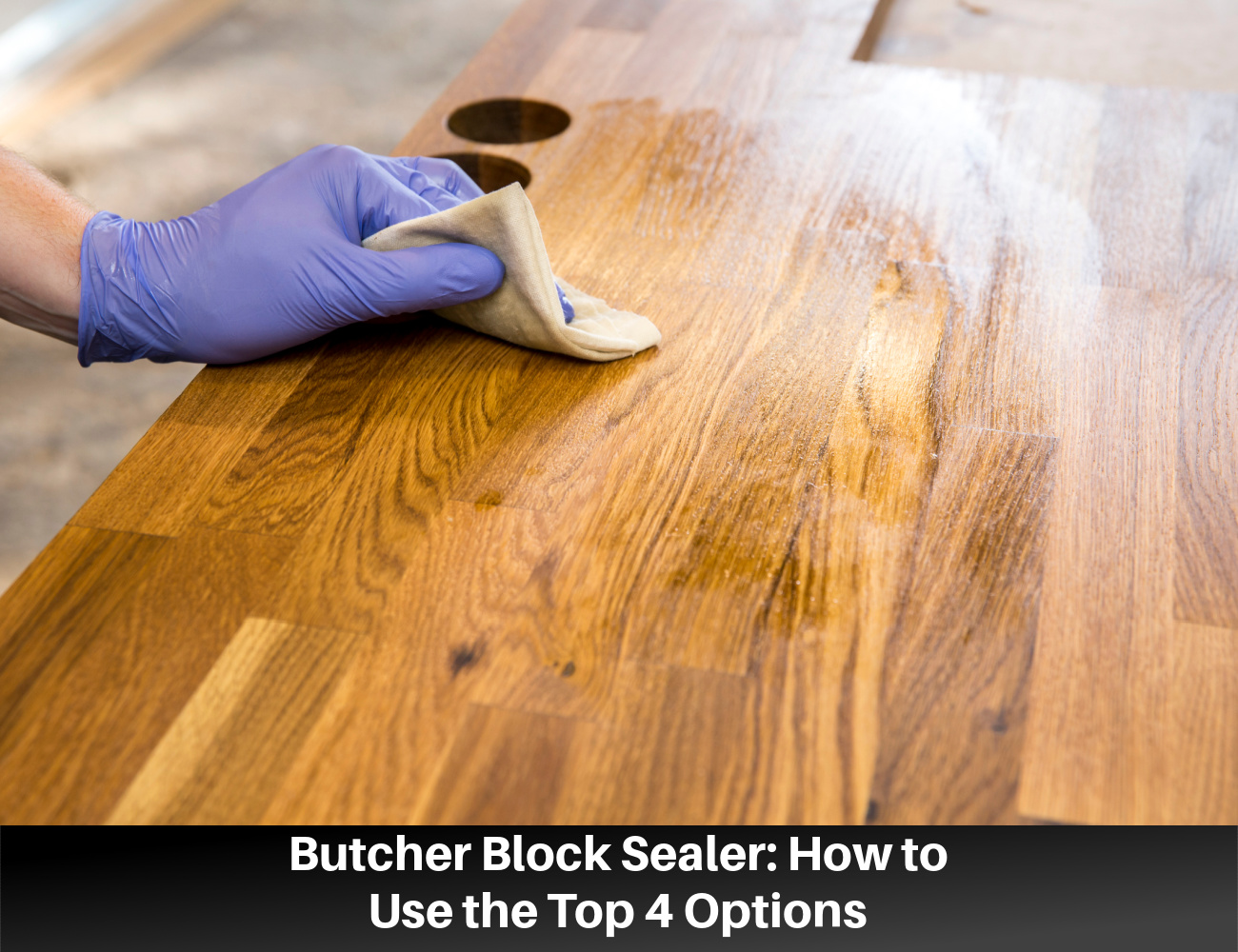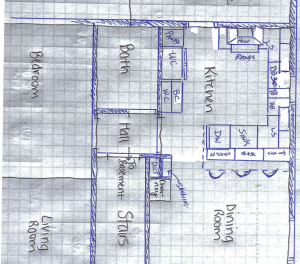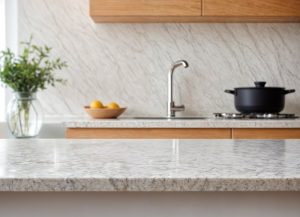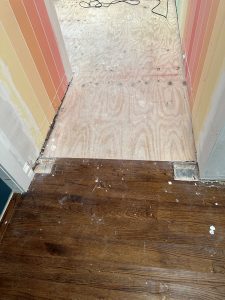
There are four standard butcher block sealer options: mineral oil, an oil and beeswax combo, Waterlox, and polyurethane. The product you choose will determine how often you need to seal your countertops, ranging from weekly to up to ten years.
Why Seal Butcher Block Countertops
Butcher block counters contain several strips of wood glued together. While these counters offer a natural texture to your kitchen, they are porous, requiring sealant on a regular basis. A sealer protects the counter from absorbing liquid, staining, and growing bacteria. Sealers also offer some protection against divots.
Choosing a food-safe sealer for your butcher block is essential, especially if you use your counter as a cutting board.
How to Use Each Type of Butcher Block Sealer
The butcher block sealer you choose will affect the appearance of your counter and how often you need to reseal it.
- Mineral Oil – Leaves a matte finish, use once daily for the first week and then switch to every 1-4 weeks, depending on use.
- Oil and Beeswax Combo – Leaves a soft shine. Apply every week for a month and then apply every 3-4 weeks afterward.
- Waterlox – Available in gloss, semi-gloss, and satin sheens. It can offer protection for up to ten years.
- Polyurethane – Comes in various finishes. It can last up to 1-2 years, depending on the frequency of use.
How to Seal a Butcher Block Counter with Mineral Oil
Food-safe mineral oil works by soaking into the butcher block and creating a barrier on the surface. It’s one of the easiest butcher block sealers to apply but requires frequent application.
For a brand-new butcher block, you’ll need to apply a coat of mineral oil every day for the first week, then every week for the following month. From there, apply a coat of mineral oil every week or two to prevent your wood counters from drying out or warping.
If your butcher block counters have a polyurethane or wax coating, you must sand it off before using mineral oil. The oil can’t penetrate through a wax, Waterlox, or polyurethane coating.
- Clean Your Counters
Scrape off any food residue, clean your counters, and allow them to dry. If there was a previous finish on the counters, sand it off and clean them again.
- Apply the Mineral Oil
Apply a liberal amount of oil to your countertops with a lint-free cloth, ensuring you coat the entire counter and edges. Allow the oil to set for fifteen minutes, then wipe off the excess with a fresh cloth.
How to Seal a Butcher Block Counter with an Oil and Beeswax Combo
A combination of mineral wax and beeswax (also known as butcher block conditioner) will fill in small divots in the wood and leave a waterproof coating on the countertop. Many homeowners prefer a butcher block conditioner over mineral oil for dark-colored wood.
If your counter has a stain, polyurethane, or film finish, you’ll need to sand it off before applying a butcher block conditioner.
Howard’s Butcher Block Conditioner is one of the most popular oil and beeswax sealers for butcher block. It contains food-grade mineral oil, beeswax, and carnauba wax. Here’s how to use it.
- Clean Your Butcher Block
Ensure your counters are free from all food debris, clean, and dry.
- Apply Butcher Block Conditioner and Allow to Sit Overnight
Use a soft, clean cloth to apply the product to the countertop and edges. Allow to sit overnight, and wipe away excess in the morning.
- Apply a Total of 3-4 Coats for Brand New Counters
If your counters are brand new, repeat the process, adding a total of 3-4 coats.
- Reapply as Needed
When the counters start to look or feel dry, reapply one coat of the product.
How to Seal Butcher Block with WaterLox
Waterlox is a resin-modified tung oil product. It will leave a protective film on your countertops that can last 7-10 years. It’s food safe when cured but contains VOCs, so be sure to work in a well-ventilated area and wear safety goggles and a mask.
For the first coats, you’ll use the WaterLox original formula, which has a medium sheen. If you want a different sheen, such as semi-gloss, satin, or gloss, you’ll use that as your last coat.
- Sand and Clean Your Butcher Block Counters
Sand your butcher block counters to remove the previous finish, then clean them with mineral spirits.
- Apply Your First Coat of WaterLox
Apply the first coat of WaterLox with a soft cloth or buffing pad. Wipe off excess and allow the first coat to dry overnight.
- Apply the Second Coat
Apply the second coat with a brush or pad and allow it to dry for 24 hours.
According to the WaterLox website, after 24 hours, you must dampen a microfiber pad with mineral spirits and gently wipe the counter to remove any sanding residue before moving to the next step. Allow the mineral spirits to evaporate (about 30 min) before applying the last coat.
- Apply the Third Coat
For your final coat, switch to your desired sheen if applicable. Apply with a brush or finishing pad and allow it to dry for 24 hours.
Don’t use your countertops for at least 24 hours after the last coat, and continue with light use for seven days.
How to Seal Butcher Block with Polyurethane
Polyurethane forms a protective waterproof coating, preventing your butcher block from absorbing water and staining. One of the benefits of polyurethane is that you can get multiple finishes, allowing you to customize the sheen of your countertops.
- Sand and Clean Your Counters
Sand your countertops to remove any previous finish. Then clean them with mineral spirits and allow them to dry.
- Apply the First Coat
Use a brush to apply the first coat of polyurethane, coating the top of the counter and edges. Work fast so you don’t leave brush marks on the counter. Be mindful of drips.
Wait at least six hours before applying the second coat.
- Apply the Second Coat
Apply a second coat of polyurethane with your brush. Again, don’t overwork the product or brush strokes will be visible.
Refer to the product’s package for full dry/cure time before using your countertops.






